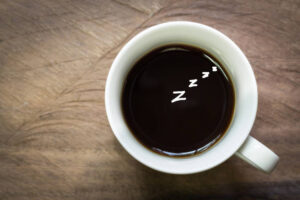For coffee lovers, the quest for the perfect cup is never-ending. Among the myriad of choices, cold brew and iced coffee often stand out, especially during those hot summer months. But there’s a question that frequently buzzes in the minds of caffeine enthusiasts: does cold brew have more caffeine than iced coffee? In this blog post, we’ll explore the differences between these two popular beverages, uncover their caffeine content, and help you make an informed decision on which might be the better pick for your daily jolt.
Understanding Cold Brew
What is Cold Brew?
Cold brew is a coffee brewing method where coffee grounds are steeped in cold water for an extended period, usually between 12 to 24 hours. This slow extraction process produces a smooth, less acidic coffee that is often served chilled with ice or diluted with water or milk.
The Brewing Process
The key to making cold brew lies in its simplicity and patience. Coarsely ground coffee is mixed with cold water and left to steep at room temperature or in a refrigerator. After the steeping period, the mixture is filtered to remove the grounds, resulting in a concentrated coffee that can be enjoyed as is or diluted.
Flavor Profile
Cold brew coffee is known for its smooth and mellow flavor. The extended steeping time allows for a richer extraction of coffee oils and flavors, leading to a naturally sweet and less bitter taste compared to traditional hot brewed coffee.
Unpacking Iced Coffee
What is Iced Coffee?
Iced coffee is a beverage made by brewing hot coffee and then cooling it down by pouring it over ice. It’s a quick and convenient way to enjoy a cold coffee drink, and it can be customized with various additives like milk, sugar, and flavor syrups.
The Brewing Process
The process for making iced coffee starts with brewing a pot of coffee using your preferred method, such as a drip coffee maker or a French press. Once brewed, the hot coffee is allowed to cool slightly before being poured over a glass filled with ice. This rapid cooling can sometimes dilute the coffee, so some methods involve brewing a stronger batch to compensate.
Flavor Profile
Iced coffee retains the characteristics of the hot brew method used, which means it can vary widely in flavor. Generally, it is more acidic and has a sharper taste compared to cold brew. The added ice can also lead to dilution, affecting the strength and intensity of the coffee.
Caffeine Content Comparison
Measuring Caffeine in Cold Brew
Cold brew coffee is typically more concentrated than regular coffee due to the long steeping process and the high coffee-to-water ratio. On average, an 8-ounce serving of cold brew can contain between 100 to 200 milligrams of caffeine, depending on the beans and brewing method used.
Measuring Caffeine in Iced Coffee
Iced coffee, on the other hand, has a caffeine content similar to that of the hot coffee from which it is made. An 8-ounce cup of hot brewed coffee generally contains about 95 milligrams of caffeine. When poured over ice, the caffeine concentration may decrease slightly due to dilution, but it remains relatively high.
Which One Packs a Bigger Punch?
When comparing cold brew and iced coffee head-to-head, cold brew tends to have more caffeine per ounce, primarily because it is a concentrate. However, the final caffeine content in your cup can vary depending on how the cold brew is diluted and the strength of the iced coffee.
Health Benefits and Drawbacks
Benefits of Cold Brew
- Lower Acidity: Cold brew is less acidic, making it gentler on the stomach and teeth.
- Smoother Taste: Its smooth and mellow flavor profile is often preferred by those who find hot brewed coffee too bitter.
- Extended Shelf Life: Cold brew can be stored in the refrigerator for up to two weeks without significant loss of flavor.
Benefits of Iced Coffee
- Quick and Convenient: Iced coffee is faster to prepare since it involves brewing hot coffee and cooling it down.
- Flexible Additives: It’s easy to customize with milk, cream, sweeteners, and flavorings.
- Hydration: The added ice can contribute to overall hydration, especially on hot days.
Potential Drawbacks
- Cold Brew: Higher caffeine concentration can lead to jitters or increased heart rate if consumed in large quantities.
- Iced Coffee: The acidity might not be suitable for those with sensitive stomachs, and the rapid cooling can lead to a diluted taste.
How to Make Your Perfect Cup
Making Cold Brew at Home
- Choose Your Beans: Opt for coarsely ground coffee beans.
- Mix and Steep: Combine one cup of coffee grounds with four cups of cold water. Stir and steep for 12 to 24 hours.
- Filter: Use a fine mesh sieve or a coffee filter to separate the grounds from the liquid.
- Serve: Dilute with water or milk to taste. Enjoy over ice.
Making Iced Coffee at Home
- Brew Strong Coffee: Use your preferred method to brew a pot of strong coffee.
- Cool Down: Allow the coffee to cool to room temperature or refrigerate it.
- Pour Over Ice: Fill a glass with ice and pour the cooled coffee over it.
- Add Extras: Customize with milk, cream, sugar, or flavor syrups.
FAQs
Does cold brew have more caffeine than iced coffee?
Yes, typically cold brew has more caffeine per ounce because it is brewed as a concentrate. However, the final caffeine content depends on how it is diluted and the strength of the iced coffee.
Is cold brew healthier than iced coffee?
Cold brew is less acidic, making it gentler on the stomach and teeth. However, both can be enjoyed as part of a healthy diet.
Can I make cold brew with any coffee beans?
Yes, you can use any coffee beans to make cold brew. However, coarsely ground beans are recommended for the best flavor extraction.
How long does cold brew last?
Cold brew can be stored in the refrigerator for up to two weeks. It’s best enjoyed within the first week for optimal flavor.
Conclusion
In the caffeine showdown between cold brew and iced coffee, the winner ultimately depends on your personal preferences and needs. Cold brew offers a smooth, less acidic taste with a higher caffeine concentration, while iced coffee provides a quick, refreshing option with a familiar flavor profile. Whichever you choose, both are excellent ways to enjoy coffee on a hot day.
Ready to explore more about coffee? Sign up for our newsletter and get exclusive tips and recipes directly to your inbox!






